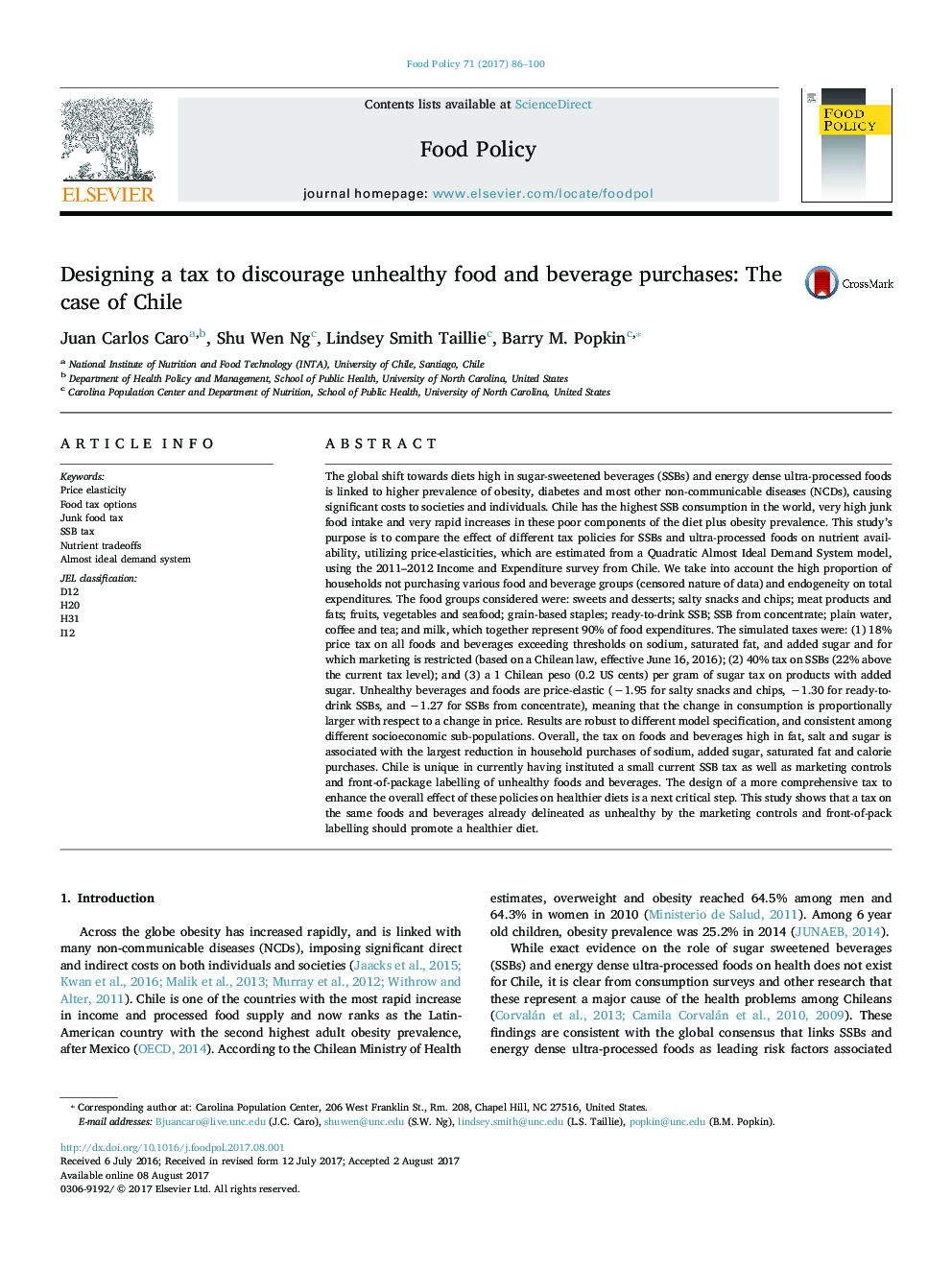| کد مقاله | کد نشریه | سال انتشار | مقاله انگلیسی | نسخه تمام متن |
|---|---|---|---|---|
| 5070042 | 1477005 | 2017 | 15 صفحه PDF | دانلود رایگان |
- We estimated a demand system for foods and beverages in Chile.
- Demand for junk foods and sugar-sweetened beverages are price-elastic.
- We simulated the effect of three tax scenarios on nutrient purchases.
- Taxing foods high in fat, sodium and sugar (HFSS) reduces unhealthy nutrients.
The global shift towards diets high in sugar-sweetened beverages (SSBs) and energy dense ultra-processed foods is linked to higher prevalence of obesity, diabetes and most other non-communicable diseases (NCDs), causing significant costs to societies and individuals. Chile has the highest SSB consumption in the world, very high junk food intake and very rapid increases in these poor components of the diet plus obesity prevalence. This study's purpose is to compare the effect of different tax policies for SSBs and ultra-processed foods on nutrient availability, utilizing price-elasticities, which are estimated from a Quadratic Almost Ideal Demand System model, using the 2011-2012 Income and Expenditure survey from Chile. We take into account the high proportion of households not purchasing various food and beverage groups (censored nature of data) and endogeneity on total expenditures. The food groups considered were: sweets and desserts; salty snacks and chips; meat products and fats; fruits, vegetables and seafood; grain-based staples; ready-to-drink SSB; SSB from concentrate; plain water, coffee and tea; and milk, which together represent 90% of food expenditures. The simulated taxes were: (1) 18% price tax on all foods and beverages exceeding thresholds on sodium, saturated fat, and added sugar and for which marketing is restricted (based on a Chilean law, effective June 16, 2016); (2) 40% tax on SSBs (22% above the current tax level); and (3) a 1 Chilean peso (0.2 US cents) per gram of sugar tax on products with added sugar. Unhealthy beverages and foods are price-elastic (â1.95 for salty snacks and chips, â1.30 for ready-to-drink SSBs, and â1.27 for SSBs from concentrate), meaning that the change in consumption is proportionally larger with respect to a change in price. Results are robust to different model specification, and consistent among different socioeconomic sub-populations. Overall, the tax on foods and beverages high in fat, salt and sugar is associated with the largest reduction in household purchases of sodium, added sugar, saturated fat and calorie purchases. Chile is unique in currently having instituted a small current SSB tax as well as marketing controls and front-of-package labelling of unhealthy foods and beverages. The design of a more comprehensive tax to enhance the overall effect of these policies on healthier diets is a next critical step. This study shows that a tax on the same foods and beverages already delineated as unhealthy by the marketing controls and front-of-pack labelling should promote a healthier diet.
Journal: Food Policy - Volume 71, August 2017, Pages 86-100
